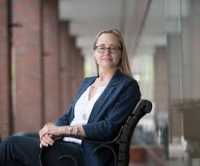Author Interviews, Gender Differences, Surgical Research / 14.10.2020
Why Do Female Surgeons Perform Less Complex Procedures?
MedicalResearch.com Interview with:
Cassandra M. Kelleher, MD, FACS
Surgical Director, Fetal Care Program
Surgical Director, NICU
Quality and Safety Chair, Pediatric Surgery
MGH eCare Clinical Informaticist
Pediatric Surgery
MassGeneral Hospital for Children
Boston, MA
MedicalResearch.com: What is the background for this study?
Response: Only about one in five surgeons practicing in U.S. is female. Unemployment is virtually nonexistent among surgeons, but many female surgeons, as well as professional women in other fields, experience underemployment—the underuse of skills—according to the Federal Reserve Bank. Women in surgery talk among themselves about how they may be perceived as less confident or competent, and for those reasons they may have less opportunity to do exciting and challenging cases. We wondered if this was true, and if so, why? (more…)

